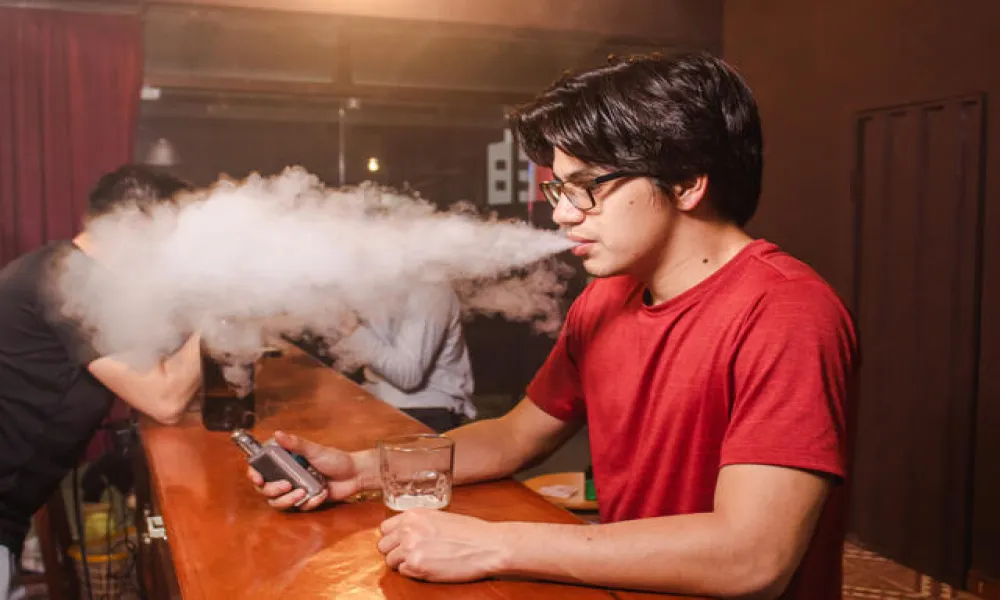Cyprus’ teenagers are no longer struggling with a single addiction, but with several at once. They gamble, vape, drink, and stay up late glued to screens chasing their next “win”. These are not isolated habits, but symptoms of a broader culture of risk that now defines a generation. Officials are sounding the alarm: the era of the “single addiction” is over. Today, we are talking about poly-addiction - a combination of dependencies that feed and reinforce one another.
Redefining what we mean by ‘addiction’
The rise of poly-addiction has placed prevention and treatment agencies in Cyprus on high alert. According to the Cyprus National Addictions Authority (AAEK), there has been a clear shift in recent years, away from substance use and towards behavioural forms of addiction such as gambling, gaming, and excessive internet use.
The AAEK has already stressed the need to redefine “addiction” to reflect this new reality. Addiction, it argues, is not only the use of substances but also any repetitive behaviour that causes loss of control and dysfunction in daily life. Mental health experts say this is not a theoretical shift but an urgent recognition that young people today are exposed to multiple addictive behaviours simultaneously.
This change in the nature of addiction is inseparable from the structure of modern life: constant connectivity, the demand for instant gratification, and the pressure to succeed create fertile ground for behaviours that offer quick relief. Young people, specialists note, are not necessarily chasing substances or profit but emotion: stimulation, relaxation, acceptance. This shared emotional need blurs the boundaries between one form of addiction and another.
Numbers tell the story
To understand the scale of the problem, consider the most recent figures from Cyprus:
-
16% of 16-year-old students said they had gambled with money in the past year.
-
6.1% show signs of problematic gambling, below the European average but alarming given their age.
-
23% of students reported smoking in the past year, a figure that rises sharply when e-cigarettes are included: 8.6%of Cypriot teens vape daily, exceeding the European average.
-
37% of students admitted being drunk in the past month, well above the EU average of 30%.
-
Cannabis remains the most common illicit drug, with 28% of teenagers saying they can obtain it “very easily”.
With the parents’ blessing
Even more troubling is that many of these behaviours unfold with the silent acceptance or even encouragement, of parents. Some teenagers gamble online using their parents’ money or credit cards. In other families, “trying one’s luck” is seen as harmless fun. The line between harmless reward and harmful habit becomes blurred, especially when the example comes from home.
“When a child sees their father betting or their mother vaping, they learn that such behaviours are socially acceptable,” mental health professionals explain. The family, once the first line of protection, is becoming a passive observer - or even an unwitting accomplice. And while society continues to treat addiction as a personal failure, in reality it has become a social phenomenon of tolerance.
It is not uncommon to see parents “playing” alongside their children, laughing when the teenager wins a bet or allowing them to buy gaming rewards with “points”. This seemingly innocent permissiveness sends a dangerous message: that risk is acceptable and loss insignificant. In this way, addiction ceases to be an individual issue and becomes a family pattern, a habit passed quietly from one generation to the next.
Gambling on screen
Technology has radically transformed access to gambling. Despite strict regulations, teenagers can easily find ways to bet online - often through VPNs or apps that bypass age verification. Around 25% of bets in Cyprus are placed in physical betting shops, while 15% occur online. The proportion of online gambling is rising steadily, as technology makes betting accessible, fast, and socially invisible.
The same reward mechanisms are embedded in electronic games - through loot boxes, points, and “wins” that trigger the same dopamine responses as gambling. Addiction now begins not at 18, but at 13 or 14 - through the glow of a smartphone screen.
Facing an invisible wave
Poly-addiction doesn’t always have a face. It isn’t the image of a desperate or delinquent teen. It’s the classmate who vapes “to relax”, the friend who “plays just for fun”, the child who falls asleep with their phone in hand. Beneath these habits runs a common thread: the need for relief, validation, excitement - needs society still struggles to address.
This generation doesn’t just need to be “saved” from addiction. It needs to be heard. Because behind every bet, every puff, every endless scroll, there is a young person searching for a way to feel - and a society showing them the wrong direction.
